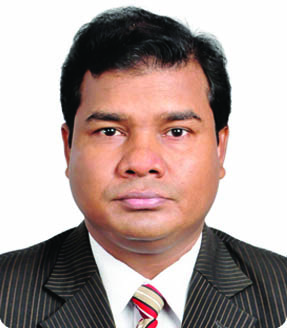Community Clinic A Success Story

The innovative idea of establishing community clinic by Prime Minister Sheikh Hasina, who seeks to ensure healthcare facilities reach the doorsteps of marginalized and other grassroots people of the country, has brought about a transformative change, experts opine. The government is working on providing health cards to all in the community clinic areas across the country as the pilot project for distributing health cards is going on in 19 community clinics and by June this year the program will take an effective shape.
Sources concerned said the health cards will be linked with the National ID card of the citizens so that a complete database of the patients of the particular locality is in place. Experts said the idea of community clinic began to be implemented back in the year 1996 with the realization that there is no alternative to establishing community-based healthcare centres to give relief to people in the remotest parts of the country from their medical problems.
Given the rickety healthcare system that was running for quite a long period of time, the government's initiative of reaching healthcare to the doorstep of marginalized people through community clinic was a milestone and timely. So far, a total of more than 74 crore of rural people have already visited 13,816 community clinics at their respective Unions with various health problems. The government has a plan to open more 1,029 community clinics soon at the unserved Unions. Currently, one Community Health Care Provider (CHCP) is engaged at each clinic.
Line Director, Community-Based Health Care (CBHC) of the Directorate General of Health Services (DGHS), Prof. Dr. Abul Hashem Khan, told Bangladesh Post that the government has formed a trust to ensure long-term sustainability of the community clinics as the idea has already attained success more than the expectation.
"Community clinic is working with a comprehensive operational plan. It works with MMC, NCDC etc. and as per the online survey and BBS data more than 85 percent of service recipients of the community clinic have expressed their satisfaction in terms of service and facilities they get at the clinics", Dr. Hashem added.
He said activities of community clinic are a continuous process and with the passage of time newer things will be added that will bring much more benefits for the targeted group of people. The government has arranged to distribute at least 32 kinds of medicine free of charges from the clinics, also have arrangement of subject-wise counseling, three days on nutrition and equal number of days on family planning, which are considered to be working very effectively in preserving good health and controlling the population.
Sources in the Health Ministry told Bangladesh Post that the community clinic is the bottom-line healthcare infrastructure of the government, now running through public and private sector financing under the 'Community Clinic Health Support Trust Act-2018' since the law went into force in the year 2018.
Meanwhile, the government also plans to build a 'Trust Fund' so that the programme may run smoothly for a long term.
Ministry sources said health sector has developed a lot in recent years compared with the past and now the government has kept it in its list of priority programmes and working hard to reach the healthcare to the grass roots people. Section-10 of the 'Community Clinic Health Support Trust Act 2018' mentions about inclusion of common people with a significant sector like health. Under the Act, a community group is formed comprising the representatives among the people around the community clinic areas and making them involved in activities of the clinics.
Community clinics directly contribute to reduction in maternal and children mortality rate as trained birth attendants are providing delivery services to pregnant mothers through the clinics. People are having a trust in the clinics whenever they are affected by diarrhea, cough and cold. Usually, community clinics provide primary healthcare and referral services to the people but there are plans to widen the service immediately.



